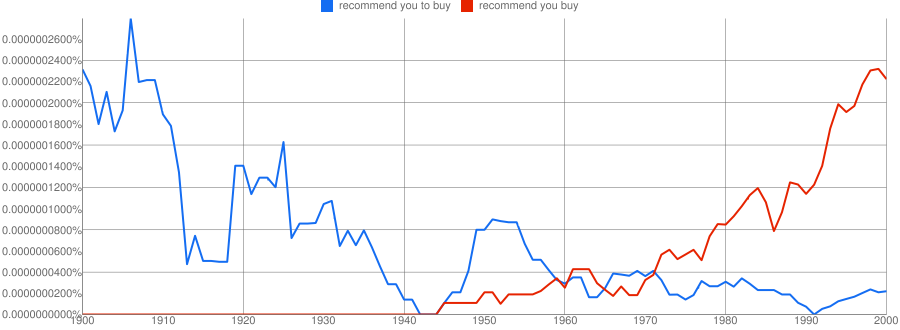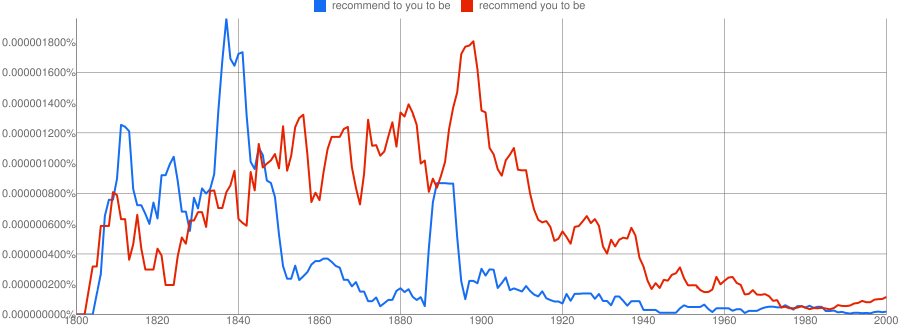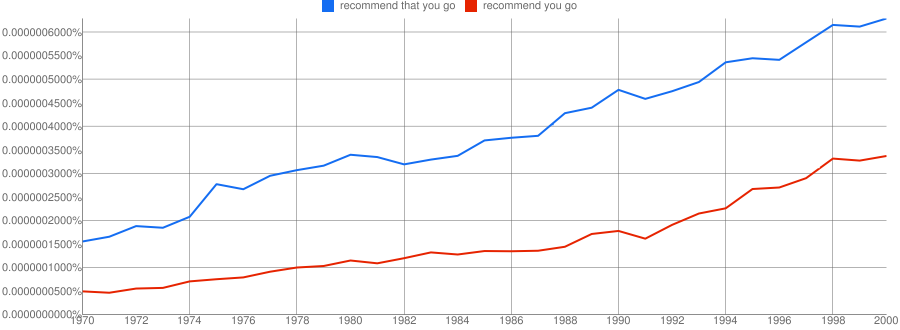This is an area where usage has recently changed quite significantly...

Note that the same pattern occurs with any other verb - lately, we just don't bother with "to". If we look back further in time, we see that even the first "to" has been progressively discarded...

Technically speaking, as @Mustafa points out, there are some contexts where omitting the first "to" implies that the recommendation itself is being made to someone else, about you. In practice this is rarely an issue - the intended meaning is invariably clear, and in most cases the advice is actually being given to "you".
I think the main driving force behind this shift in usage is simply that we all sense "We recommend to you to buy a new car" is far too "verbose". Increasingly, we tend to just go for the concise form "We recommend [that] you buy a new car".
Also note that the current trend is increasingly not to bother with "that" either...




